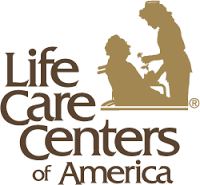Our firm has been suing nursing homes since the 1990s. In fact, Suthers & Harper was one of the first firms in the United States to obtain a successful jury verdict against a nursing home for neglecting and abusing a resident. When we first started accepting these cases in the 1990s, the two most common types of injuries that we saw recurring in nursing homes were pressure sores and fall-related injuries. Regrettably, 20 years later, these are still the two most common injuries we see in the nursing home setting. Fall-related injuries significantly impact the lives of residents and their families. Some of the more significant, life-altering injuries resulting from falls in nursing homes include hip fractures and subdural hematomas (brain bleeds). When a resident falls in a nursing home and suffers a serious injury, it often causes, or contributes to the cause, of impairment, disability, and a decrease in enjoyment of life.
The Centers for Disease Control and Prevention (CDC) has studied the impact of falls on elderly individuals. As many as 75% of elderly individuals who reside in nursing homes sustain at least one fall yearly. That is twice as much as the number of falls among older individuals living at home or within the community at large. According to the CDC, as many as 20% of the falls that occur in nursing homes result in a serious injury.
In examining why falls occur in nursing homes, one must look at the patients’ risk factors as well as environmental factors. Often, residents of nursing homes have medical conditions, such as Parkinson’s disease, impairment from a prior stroke, diabetic neuropathy, and visual impairment, which can affect their balance and ability to walk. Residents may also have conditions, such as dementia and Alzheimer’s disease, that can affect their judgment. These conditions place the residents at an increased risk of falling. It is the nursing home’s duty to recognize these risk factors and take steps to prevent falls or lessen the risk of falls and fall-related injuries. Nursing homes also have a duty to address any environmental hazards, such as clutter in the hallways, inadequate lighting, slippery floor surfaces, and lack of adequate safety equipment in rooms and bathrooms, in an effort to prevent falls.
 Georgia Injury Lawyer Blog
Georgia Injury Lawyer Blog



